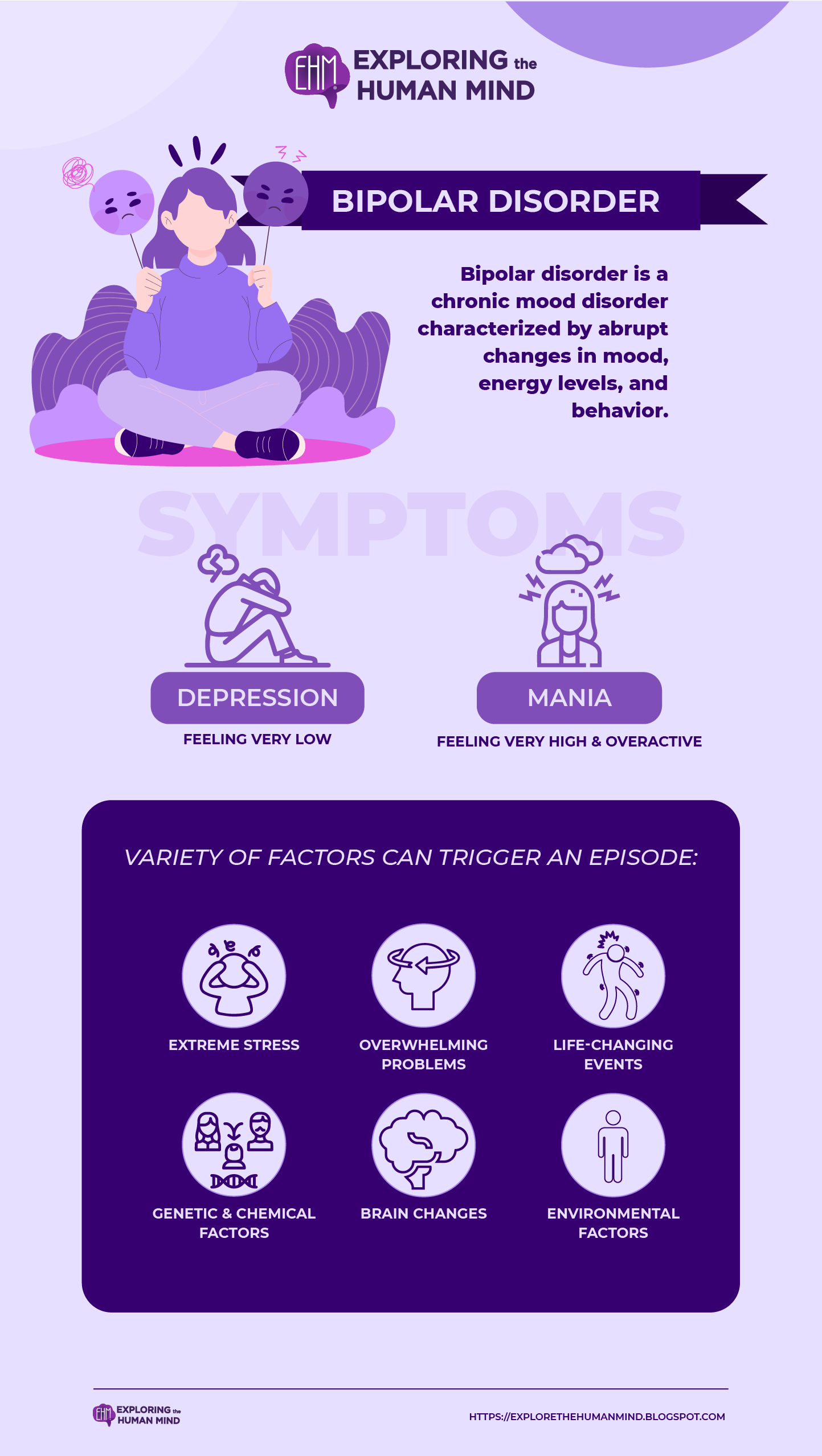Bipolar Disorder
Bipolar disorder, formerly known as manic depression, is a mental health condition characterised by extreme mood swings characterised by emotional highs (mania or hypomania) and lows (depression). You may feel sad or hopeless when you are depressed, and you may lose interest or pleasure in most activities. When your mood shifts to mania or hypomania (a milder form of mania), you may feel euphoric, energised, or unusually irritable. Sleep, energy, activity, judgement, behaviour, and the ability to think clearly can all be affected by mood swings.
Symptoms
People with bipolar disorder experience episodes of depression (feeling very low) and mania(feeling very high and overactive). The symptoms of bipolar disorder vary depending on the mood you're in. Unlike simple mood swings, each extreme episode of bipolar disorder can last several weeks (or even longer).
Causes
Although the exact cause of bipolar disorder is unknown, it is believed that a variety of factors can trigger an episode. These include:
- Extreme stress
- Overwhelming problems
- Life-changing events
- Genetic and chemical factors
Other factors that scientists believe contribute to the development of bipolar disorder include:
- Changes in your brain: Researchers have discovered subtle differences in the average size or activation of certain brain structures in people with bipolar disorder. However, brain scans cannot diagnose the condition.
- Environmental factors such as trauma and stress: A stressful event, such as the death of a loved one, a serious illness, divorce, or financial problems, can set off a manic or depressive episode. As a result, stress and trauma may also play a role in the development of bipolar disorder.

vectors by Freepick; graphic design by Vadot
Reference:
Bipolar disorder - Symptoms and causes. (2022). Mayo Clinic; https://www.mayoclinic.org/diseases-conditions/bipolar-disorder/symptoms-causes/syc-20355955
NHS Choices. (2023). Overview - Bipolar disorder. https://www.nhs.uk/mental-health/conditions/bipolar-disorder/overview/
Clinic, C. (2022). Bipolar Disorder (Manic Depression): Symptoms & Treatment - Cleveland Clinic. Cleveland Clinic. https://my.clevelandclinic.org/health/diseases/9294-bipolar-disorder






Comments
Post a Comment